A little over one year ago I sat in a chair in Joe’s office, looking out at the bare branches of a maple tree, thinking, This tree is my life. Like the tree, I felt myself to be merely a suggestion, a skeleton, an outline hinting at… more. Some interior part of me – the part capable of sensing my purpose – lay dormant. Maybe it was dead. Or maybe the desire for meaning and purpose in my life was simply a vestigial trait of the human psyche, useless in today’s world, necessarily amputated by modern life and now merely aching, like a phantom limb. I wasn’t sure. All I knew was that I was desperate, and angry. Sitting in Joe’s chair was just my latest move in a long campaign against a deeply personal winter.
Joe was the first person I allowed to see my rage. Nobody would have guessed otherwise: I was too good at hiding behind a joke, too good at filling up my branches with sheaves of projects and papers. My best disguise, in fact, was a cause. Two years previous, disgusted with the heartbreaking dehumanizing churn seemingly endemic to corporate life, I had stumbled upon Frederic Laloux’s work “Reinventing Organizations.” Suddenly my secret musings, what had felt for years like a private and foolish wish that people could work differently together, leaped from those pages as a pregnant future, a more-than-possible world guided by purpose and a fuller expression of our humanity. I reached out to Fred and we struck up a friendship. Through him I found my way into a community of like-hearted who were just as excited about these ideas, and putting them into practice, as I was. I made the decision to dedicate my work to more fully realizing the “teal paradigm” in organizations everywhere. People came together. We created things.
It felt right. More than right – it felt like I had stumbled upon destiny.
It took me a little while to realize that I was still miserable.
I believe many of us expect that meaningful, purpose-driven work pursued freely will be the cure-all for what ails us. Teal organizing shimmers on the horizon when viewed from the other side, when every day is spent locked in the frustrating mindless desert of bureaucracy. “If only I didn’t have to deal with this,” we tell ourselves. “If only I could follow my passions and direct my own work, I would be happy.” Like many of us, I believed that the panacea for all my anger and frustration was Teal.
It wasn’t. In fact, in some ways, working without traditional constraints was worse than working within them, if for no other reason than it revealed just how cleverly I had allowed myself to shift my pain onto a corporate scapegoat. This discovery, more than any other, plunged me into a sense of dazed hopelessness, a feeling I kept secret; meanwhile, I kept working with others to realize Teal. I could at least earn a reputation. I could become important, have some value among people I respected. But I wasn’t really living from the “center of my life.” As William Stafford put it:
“In your life – the center of it, not the part for earning a living, or the part that gains you notice and credit, or even the part that leads others to like you – but in your central self, are feelings so important and personal that the rest of the world cannot glimpse who you are and what is happening, deep in there, where it is you alone.”
That “deep in there” was a place I did not know. But that was about to change. And when it changed, it made all the difference.
Enter Joe.
There are many paths available to us for exploring the inner self, but until I met Joe I hadn’t encountered the one that had the power to usher me into the center of my heart. “Feelingwork” is what Joe calls his process, centered on the idea that “I” am really comprised of many separate selves, and that these selves all hold different needs and perspectives. Living an integrated life means engaging these parts: not as rogue emotions that require censure, but as valid aspects of the soul with unique gifts.
“We don’t ever try to fix anything,” Joe said. “We just allow each part of ourselves to follow its inbuilt compass towards what feels true.”
It resonated. Something stirred. I was on the edge of my seat. Three months later, I found myself looking out at a maple tree. And by the time that maple had unfurled its broad leaves and sent its seeds helicoptering down to the ground, I had learned something profound about myself and, I think, all of us living on the planet today:
My winter is not my own.
We are living in an ice age.
Of the three teal breakthroughs, wholeness seems to be the hardest to activate. When people ask me about teal, most of the time they really want to know about self-management, whether it’s possible to work without managers. Evolutionary purpose feels familiar – we have a vague notion of biological evolution, and we intuitively grasp how focusing on purpose in our organizations instead of narrow short-term goals could fundamentally change outcomes. But neither self-management nor evolutionary purpose can fully develop their potential without a radical, dogged, fierce commitment to wholeness. And this is the part we yet see as if through a glass, darkly.
People who feel the promise of teal organizations coursing in the blood: the first song we sing is lament.
Why? Because wholeness is not whole, like a tree is not really a tree, if its branches never leaf and its seeds never fall. And make no mistake. Ours is a frostbitten culture. What we sense in the promise of teal is truly the promise of spring: but it is a spring that starts within. It starts with acknowledging where we’ve been, and what violence was required of us in order to survive.
Draw breath on the planet today and you have felt, in some way or another, the chill of the orange shadow. Among many virtues, sinister second-order effects yet remain, despite all our efforts to expunge them: exploitation, pollution, and extinction, just to name a few. In the western industrial world, these shadow threads are woven inseparably throughout the fabric of our society. The systems core to our society operate with one purpose: the convention-ing, conforming and constraining of the human soul’s immense potential.
Conforming us into what? Into something…
Useful. Practical. Predictable. Defined.
Can you feel the chill in those words?
We all can. And so have generations of human beings – essentially creative, strange, wild, and surprising – who have layered themselves against the cold with cultural adaptations and defenses designed to keep the warm beating heart hidden and safe. This is the tragedy and the irony. Safe in our layers of isolation, we lose touch of our greatest gifts.
These layers, these culture norms, are tailored for us before we are born, defined first by the words “boy” and “girl.” The fitting continues in the factory line of K-12 education: the layers weighing us down, muffling our voices, hiding our faces from the cold, until we arrive fully assembled for survival in universities where we are allowed the dubious freedom of studying any field we want – so long as the eventual output is something our economy can eat. We are wired against scarcity, our instincts honed for life on the ice flow. And so on: until we find ourselves one day in our cubicle, living out our fullest definition as a thoroughly practical, predictable, useful human resource: doing our part to feed the fire.
Say not, “I have found the path of the soul.” Say rather, “I have met the soul walking upon my path.” For the soul walks upon all paths. The soul walks not upon a line, neither does it grow like a reed. The soul unfolds itself, like a lotus of countless petals. ∼Kahlil Gibran, The Prophet
In the year I spent in Joe’s chair, this idea grew to become my greatest liberation: the soul has its own agenda. It is not friendly to the circumscribed life. Nor is that “life,” as it was conceived for us, friendly to the soul. Until we begin to look inside for the secret self we once knew, we will continue to stamp out its embers; meanwhile we wander the wasteland begging for warmth.
If I can’t have what I really want, I’ll settle for fame. Fortune. A place out of the wind.
This strategy has worked, up to a point. Bereft of the soul’s guidance, we have contented ourselves with the pattern of living that led psychologist and holocaust survivor Viktor Frankl to point out twenty years ago that “when a person can’t find a deep sense of meaning, they distract themselves with pleasure.”
And it worked, for a time. But that time is over. The demagogues are rising in our midst: summoning our hurts, conjuring our devils, standing behind their slogans and promising liberation.
They are symptoms of the end of the ice age. But our total bewilderment at the rise of the Islamic State and the terrifying specter of fascist ideology looming in the West shows just fully we have been lulled to sleep.
What we do next will only be as profound as what we allow ourselves to feel.
“The voice is gone,” I told Joe.
“Which one?”
“The voice telling me to get my act together. To make something of myself. The voice that said I was pathetic, that it was tired of babysitting me… of having to keep a constant lookout for danger. It used to be so vigilant. The worst thing I could have done was distinguish myself – to stand out, to make a scene. Whenever some part of me felt like going against the grain, this voice was the part that kept all those parts in check.”
“Ah. You’re talking about the Tyrant,” said Joe. “That voice has been hard to get in touch with, hasn’t it?”
“Yeah. Every time a part of me felt vulnerable, I felt this horrible sense of fear. I didn’t dare let these parts speak up for fear that the Tyrant would come down hard on them. Crush them. I didn’t understand what it wanted, what it needed. It used to feel like some oily black cloud, hot, filling up my chest. But not anymore.”
“You’re able to get in touch with it, then? Understand what it wants?”
I looked up at Joe. “Yes. ” Tears stood in my eyes.
“What does it want?”
“It wants to be free,” I said. “It’s begging me. Please. Don’t make me do this anymore.”
I broke into sobs. “I’m sorry,” I said. Over and over again.
Deep beneath the insulating layers of our acculturation is a garden. It is a wild place: an Eden. We can return. But not before we accept that we have been agents of the deep freeze. For thousands of years human beings have sought the forgiveness of deities in the sky, the sun, the earth. Theirs is not the forgiveness we need. We need to forgive ourselves.
In the months that passed for me in Joe’s chair I found myself wandering in younger, long-forgotten interior territories, folded and tucked away in the back corners of my psyche long ago. In those territories were wild things, once-upon-a-time things. These parts of me, I was surprised to discover, had never lost their sense of wonder, meaning, or purpose. The embers still burned.
Once allowed to speak again these parts began to teach me. They were utterly unconcerned with utility, practicality, and constraint. Yet they were essential. The power and energy I felt flowing through my heart as they began to speak again transformed the landscape of my life.
Without these parts fully present and alive inside of us, we will never be whole. We will never wake from our hibernation. We will keep putting on our parkas before we go into work. We will never transcend the rhetoric currently raging like a blizzard across our airwaves and the horrifying vice grip of religious war gripping city streets and villages with fear.
The answer is not more opposition. The answer is not to gather beneath the warm torches of the ideologues.
The answer is to turn towards that inner world where the young artist fled – the dreamer, the wild one with the untamed voice, who muddied the knees of her jeans and colored outside the lines. She still lives. But finding her is difficult. She is angry, or terrified, or resigned to her fate. She won’t come out from the trees so easily. Her whole life has been either one long active resistance, or else a resignation so deep we are chilled to the bone.
Can we truly say our wholeness is vitally alive in our organizations, in our communities, in our society, unless these parts are present?
Can they ever be truly present, unless we acknowledge their hurt?
Can we ever forgive ourselves, unless we grieve for ourselves?
This is the full promise of wholeness and the necessary path we must walk towards Teal. Unless we learn how to speak from our wholeness – including the impractical and unpredictable, the useless, the dark and difficult – our teal dreams will remain bloodless. Skeletal, like a tree in winter. Our grief is the coming of spring.
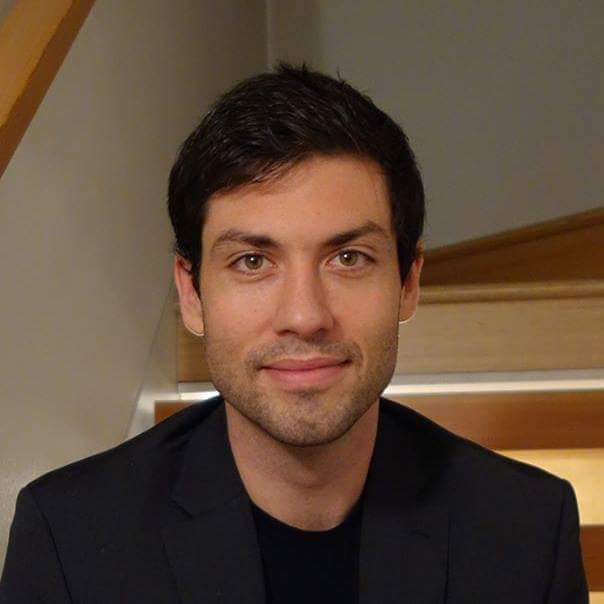 Chris Clark is a Teal organizational consultant and Feelingwork practitioner with a background in whole systems, adaptive leadership, and human-centered design. He is energizing the role of Beauty Catalyst in Enlivening Edge and co-energizing the role of Vision Holder. He co-founded the Reinventing Organizations Wiki, a resource for leaders seeking to upgrade management practices to next-stage (Teal) practices and the Reinventing Organizations online community with Frederic Laloux and others. You can find him at http://anthem.consulting or contact him at [email protected]
Chris Clark is a Teal organizational consultant and Feelingwork practitioner with a background in whole systems, adaptive leadership, and human-centered design. He is energizing the role of Beauty Catalyst in Enlivening Edge and co-energizing the role of Vision Holder. He co-founded the Reinventing Organizations Wiki, a resource for leaders seeking to upgrade management practices to next-stage (Teal) practices and the Reinventing Organizations online community with Frederic Laloux and others. You can find him at http://anthem.consulting or contact him at [email protected]
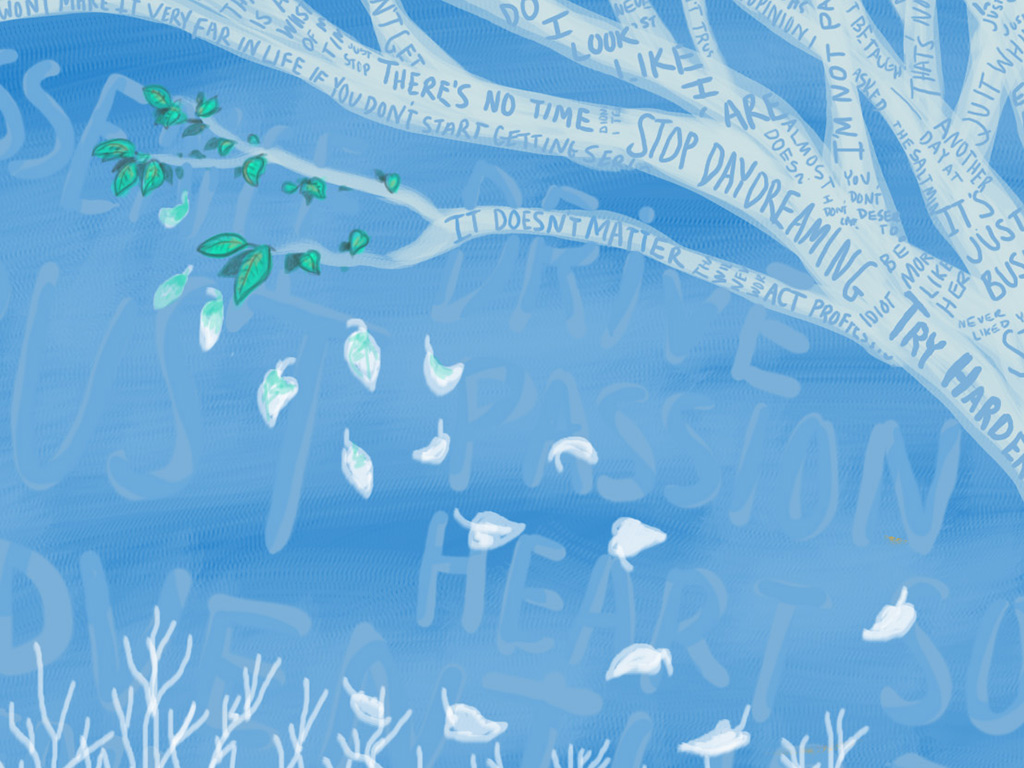
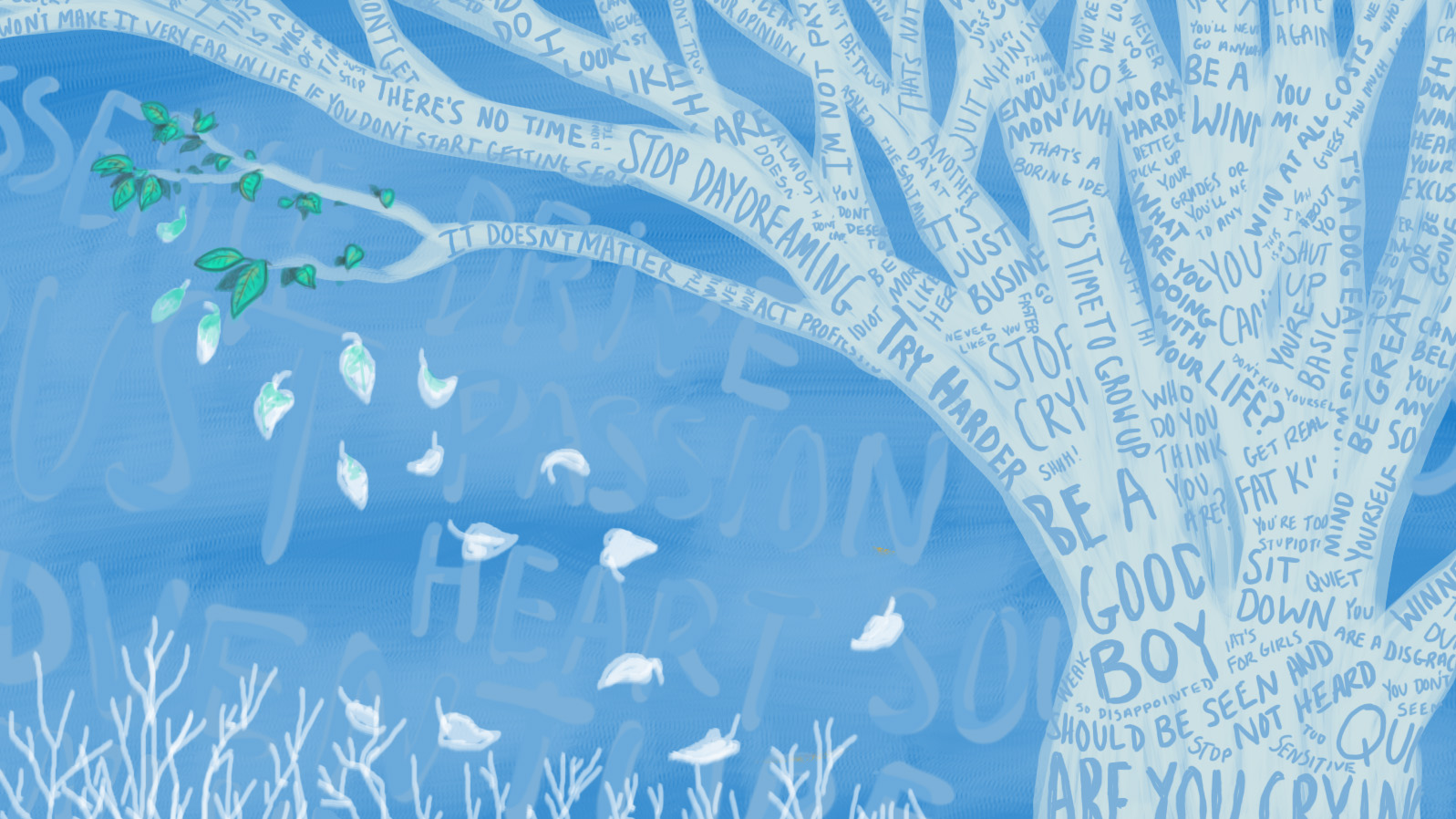
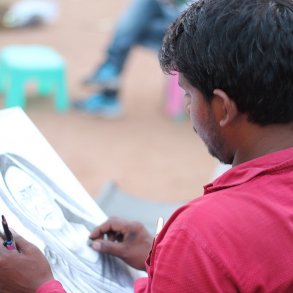

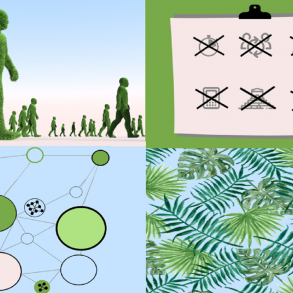

Beautifully written! Thanks for sharing!
Thanks for the honest, well written, personal account of self-discovery!
I agree that “The First Step Towards Teal Is Grief”, yet this means no more then “The First Step Towards Teal Is Green”. Green integrates who you are. It goes inside. To embody Teal, one has to have that integrated to a large extent. To make peace with Green, to move your attention elsewhere. Pain and grief left behind. Energy fully recovered, directed outwards for your, still personal, duel with the world. Acting from your core becomes your new identity. One should not go there too soon, as you rightly guessed, but also not too late! Things keep moving out there, and if you want to join, do not wait too long! 🙂
Yes Aleksander… you would have enjoyed the discussion we had among editors when this piece was still in draft. The question was, “where is green in all this?” And my opinion, which is distilled somewhat less from spiral dynamics and more from Cook-Greuter’s work, is that Green (a distinct worldview in and of itself) is a transition-phase, whereas Teal is an integration stage.
I think this matters because the journey of self-discovery begins with the Green person’s dissociation from their/any social context; then shifts as they integrate the expansive and complex practicality of Teal.
So perhaps all of these parts have their own center of gravity, and what makes it so difficult to place ourselves firmly in a category (and why I would never paint anyone with a broad brush) is that each part has its own relationship to the whole. I certainly see this when certain parts of myself are triggered and show up with red or amber energy. “Tradition” in particular is a strong undercurrent showing up for me subtly, but powerfully, in intimate relationships.
Very touching Chris. I feel this griev about the “wounded wholeness” everytime I personally try to make sense of my personal career and with the career of others. It’s like I’m not allowing myself to live this part of me and thereby reach wholeness. And at the same time I can see in others how they are not allowing themselves to really live this part of their lifes too. It’s not only like feeling wounded or unable, it’s like feeling overwhealmed and convinced to stop dreaming.
Yes! It is so hard for us to come together in our wholeness. It is a slow revealing, one petal unfolding after another. There is never a full unfolding because there is always more to unfold. Being in compassion with those parts that have yet to open is so important. I believe these are the dreaming parts. Thank you Jorn for bringing your experience forward.
Great read Chris.
Spot on Chris! Thank you for sharing this, for showing vulnerability, for letting us know we’re not the only ones.
Chris, thank you for modelling wholeness, showing vulnerability, and sharing this so eloquently. I hope it encourages more readers to speak from their wholeness. It has made me question what it could mean for me to do so 🙂
Thank you Jenna, I do hope this piece and others like it make a difference. And I would love to know what steps or orientation you are feeling called to explore in your own journey to wholeness. Sharing our edges is powerful.
I didn’t write about this in the article but a powerful idea for me has been that our senses have been colonized… by language, by implicit biases… I have been inspired by the work of Bayo Akomolafe. http://bayoakomolafe.net/
This is where I continue to strain forward, wanting my language (and my writing) to continue to explore the strangest territory and find more monsters to hug, and where I hold myself to the highest standards–and feel the greatest temptation to perfectionism.
I found your foray into the darkness both refreshingly honest and uplifting Chris. You’ve articulated what many feel well, thank you.
I notice in my work with leaders and teams mainly working from the Orange paradigm that whilst they intellectually ‘get’ Teal they don’t always feel it at first. One reason for this is it challenges the existing status quo to a point where it’s too risky to try. The other is what you point to – it means facing into some of the personal rage they’ve become so adept at keeping locked in the ‘too difficult’ box.
This confirms somewhat what Frederic spoke of in the ‘necessary conditions’ for a Teal organisation – that there needs to be a shift in consciousness amongst the majority of the leadership team. Or, how do you help leaders see evolutionary purpose and wholeness in a profoundly new way such that self-management then makes perfect sense?
I’m making strides forward on that question by helping leaders and teams realise how mindsets are the cause of them feeling negative in any situation and, when they shift, the route to a calmer and clearer perspective. And it’s through these personal realisations, and the clearer, less serious state of mind they produce, people resolve so many of the frustrations that their workplaces throw up with comparative ease. It seems once free of the burden of a mindset that no longer works, a new one automatically brings fresh insight. As if worry and anxiety is just energy waiting to be transformed.
And this is true for everyone: what we think and what we feel are linked, we experience life from the inside-out even though it compellingly looks like it’s the other way round for most of the time! And once we see how this shows up in ourselves, we tame the demands of the ego so making it much easier to see when others are operating from a mindset that’s unhelpful to them and, usually, not in the interests of the whole.
My hunch is when more people see this deeply, they’re operating from a new consciousness of how experience gets created. Teal then has an intellectual and emotional appeal because it shows up as sensible rather than threatening. Fingers crossed!
Thank you Roger for offering your insight! I find myself resonating fully with what you say. Particularly the powerful creativity that comes from the “less serious” mindset–the holy fool archetype, perhaps expressing itself–and the liberation of energy possible when we make that shift. I find myself wondering too about how this shift changes our concept of goals and milestones and vision–I think something that is impossible to guess at before one makes the shift is how the liberation of that energy opens up possibilities of purpose. Specifically, I see people guessing that their goals will remain intact as they adopt/adapt a new paradigm, and that what they are discovering is (merely) another path or strategy towards those goals… and yet the goals, the vision often changes in ways they never could have surmised before more internal “voices” got in on the discussion.
All of that leads me to wonder what the world will be like if and when the Teal paradigm unfolds more fully into the “mainstream.” Probably something we cannot predict, and probably powerfully bringing the concept of the mainstream into question. What will “mainstream” mean when we are all living powerfully, diversely into our wild, passionate selves?
Goodmorning Chris, thanks for your openess. It feels good to read the words I myself cannot give to the feelings and direction I want to go. It is about a knowing, a feeling which path I have to go, but it is difficult to express to somebody who is not living by these impulses. Sometimes that makes me think I am crazy, but if I read text like yours I know I am not the only one. I do want to share my ideas and longings but I am afraid not being accepted by others (or is it myself?). It is good to find a chair to sit in and create the new world. Because I know it is not my world, it is the world where we can be open and not be ashamed of our stories. So lets create a chair, a couch where we can sit and share our stories. Create a safe place where I and you can be save, whoever you are…Have a beautiful saterday! Linde
We moved at supersonic speed from IT to Informational economies,and now into Human Economies where the Human Operating System is at the core. Unfortunately wev not upgraded our mindsets to move along and uphold this evolution. Therefore,the course corrections that should’ve happeneded at every stage,erupt as grief.
True, chasing the Teal is as meaningful as the Teal itself- the journey counts for as much aa the destination!